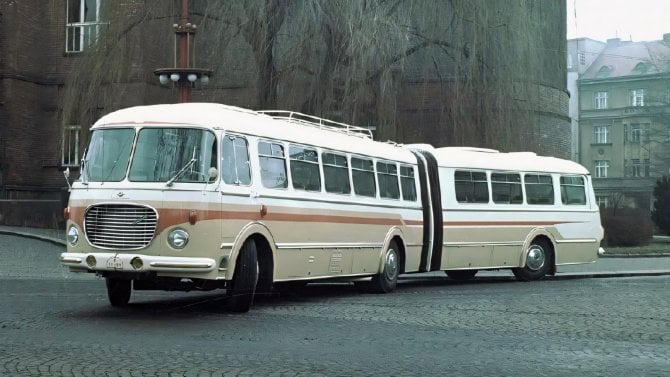...
By Darren Ennis
STRASBOURG, France, German Chancellor Angela Merkel warned on Wednesday failure to revive the European Union's constitution would be a "historic mistake" that would leave the bloc divided and mired in bureaucracy.
Merkel said Germany would aim by the end of its six-month presidency of the European Union in June to offer a plan for resolving the deadlock before European Parliament elections in mid-2009, but offered no hint of how a compromise could look.
"I know it is a very difficult door I am knocking on, but please don't make this historic mistake. Don't prevent Europe from taking a step in that direction which basically you also want," she told the European Parliament in a plea directed explicitly at Eurosceptics in Britain and elsewhere.
Asked about Britain's reluctance to revive the stalled treaty, Merkel said it was paradoxical that some of the strongest supporters of EU enlargement opposed institutional reforms without which any further expansion would be impossible.
Efforts to overhaul Brussels' unwieldy structures have been in limbo since French and Dutch voters rejected the charter designed to streamline decision-making in 2005.
"A lumbering bureaucratic, divided Europe will not solve the challenges it faces, be they in foreign and security policy, climate and energy, European research, cutting red tape or in dealing with enlargement and with our neighbours," she said.
Appealing for the EU to deepen ties with the United States and Russia, and make its influence felt from the Balkans to the Middle East and Africa, Merkel said it was time the EU had its own foreign minister -- a key provision of the constitution.
Jose Manuel Barroso, president of the executive European Commission, said any final compromise must "clear the clouds of doubt which hang over parts of Europe".
SCEPTICAL ON REFERENDUMS
With French President Jacques Chirac and British Prime Minister Tony Blair set to leave office this year, Merkel has emerged as Europe's most influential leader.
German officials say what she can achieve depends largely on who is elected president of France on May 6. The French "No" vote stemmed partly from fears cheap labour from new member states in the east would take away jobs in western Europe.
Socialist presidential candidate Segolene Royal said for the first time on Wednesday she would ask the public to vote again in 2009 on a revised constitution, which she said should include a second declaration on workers' rights and public services.
"With this, I think that the French people will regain confidence and I will be able to bring them along, those who voted yes and those who voted no," she said in Luxembourg.
Her conservative opponent, Nicolas Sarkozy, has advocated a "mini-treaty" stripped down to the key institutional reforms, to be ratified by parliament, not a referendum.
Merkel made clear her scepticism about more referendums, rejecting a call for a pan-European plebiscite. The treaty can only enter into force if all 27 member states ratify it.
Slovenian Prime Minister Janez Jansa, whose country takes over the EU presidency at the start of next year, said Germany, Portugal -- due next in the hot seat -- and his country hoped to broker an agreement without referendums.
"If we want to reach a compromise on the constitution then to do this, the realistic solution for the trio is to have an inter-governmental conference and ratification by the individual parliaments," he told Reuters.
"The best way for us is to reach a deal without referendums. The whole referendum procedure would take too long."
Behind the scenes, diplomats say Germany is sounding out its partners on what would have to be removed from the text ratified so far by 18 member states to enable the remaining countries to endorse it, if possible without referendums.
Critics of the charter slammed Merkel's approach as undemocratic in the debate that followed her speech.
"The EU's political establishment is now going full steam ahead to thrust the constitution upon us," eurosceptical British conservative Neil Parish said, warning EU leaders against trying to "airbrush out the wishes of the French and Dutch voters". (additional reporting by Michele Sinner in Luxembourg) ((Writing by Mark John and Paul Taylor, editing by Jon Hemming; Reuters Messaging: paul.taylor.reuters.com@reuters.net; +322 2876801))
Keywords: EU MERKEL/
[Reuters/Finance.cz]




 Test Citroen C3 Aircross: Na velikosti záleží
Test Citroen C3 Aircross: Na velikosti záleží
 Po stopách prototypů československých užitkových vozidel. Dochovalo se jich jen minimum
Po stopách prototypů československých užitkových vozidel. Dochovalo se jich jen minimum
 Nastavoval intenzitu elektronické cigarety za volantem, dostal pokutu. Podle soudu je e-cigareta mobil
Nastavoval intenzitu elektronické cigarety za volantem, dostal pokutu. Podle soudu je e-cigareta mobil
 Ojetiny dál zdražují, „Áčka“ jich přesto prodávají rekordní množství. Podle jejich šéfky roste pomalu i zájem o elektromobily
Ojetiny dál zdražují, „Áčka“ jich přesto prodávají rekordní množství. Podle jejich šéfky roste pomalu i zájem o elektromobily
 Historicky nejrychlejší Fabia dorazila na trh. Stojí 700 tisíc a na dálnici spráská i násobně dražší elektromobily Enyaq a Elroq RS
Historicky nejrychlejší Fabia dorazila na trh. Stojí 700 tisíc a na dálnici spráská i násobně dražší elektromobily Enyaq a Elroq RS
